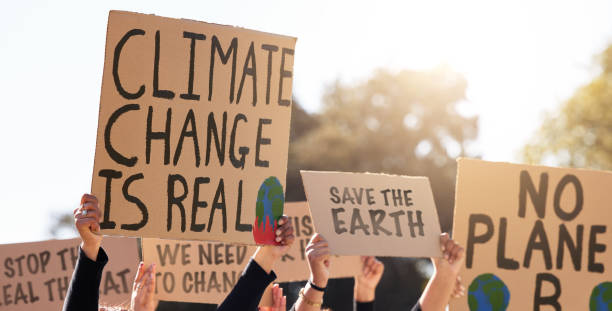"Intersecting Paths: The Role of Law in Climate Change Policy"
Introduction (60 words): Climate change is an urgent global issue, increasingly intersecting with legal and policy frameworks. As countries grapple with the effects and challenges of climate change, let's explore how the law is being used to mitigate these threats and the implications of this intersection on society.

Legal Frameworks for Climate Change: A Historical Overview
In the last few decades, the world has increasingly become aware of the dire consequences of climate change. The year 1992 marked a significant turning point when the United Nations Framework Convention on Climate Change (UNFCCC) was established, setting a global agenda for countries to tackle climate change. This international treaty was the first legal instrument to recognize the global nature of the climate change problem and the shared responsibility of nations to address it.
Climate Change Laws: Recent Developments
More recently, laws specific to climate change have been enacted in many countries. In 2008, the United Kingdom passed the Climate Change Act, becoming the first country to establish a legally binding framework to reduce greenhouse gas emissions. Similarly, the United States has introduced several legislative packages aimed at tackling climate change, focusing on renewable energy, carbon pricing, and emission standards.
The Role of Courts in Climate Change Action
Courts worldwide have also become arenas for climate change action. A landmark case is the Urgenda case in the Netherlands, where the Dutch Supreme Court ordered the Dutch government to cut greenhouse gas emissions by at least 25% by the end of 2020, compared to 1990 levels. This ruling set a precedent for courts to hold governments accountable for their climate commitments.
The Impact on Society: A Legal Lens
The intersection of law and climate change policy has profound implications for society. Laws and legal rulings can drive systemic change, compel governments and corporations to act, and provide a legal basis for citizens to demand climate action. However, they also raise complex questions about the balance of power, the role of the judiciary, and the potential for legal tools to address global problems.
Looking Ahead: The Future of Law and Climate Change
Looking forward, the law will continue to play a crucial role in the fight against climate change. Legal mechanisms can be powerful tools to enforce climate commitments and hold parties accountable. However, creating effective and equitable climate laws will require a nuanced understanding of the multifaceted nature of climate change, the interconnectedness of societal systems, and the need for a just transition to a sustainable future.
In conclusion, while the intersection of law and climate change policy is complex, it presents unique opportunities for driving systemic change and addressing one of the most pressing issues of our time. As the legal landscape continues to evolve, it will be vital to ensure that laws and policies are equitable, effective, and grounded in the realities of climate science.




